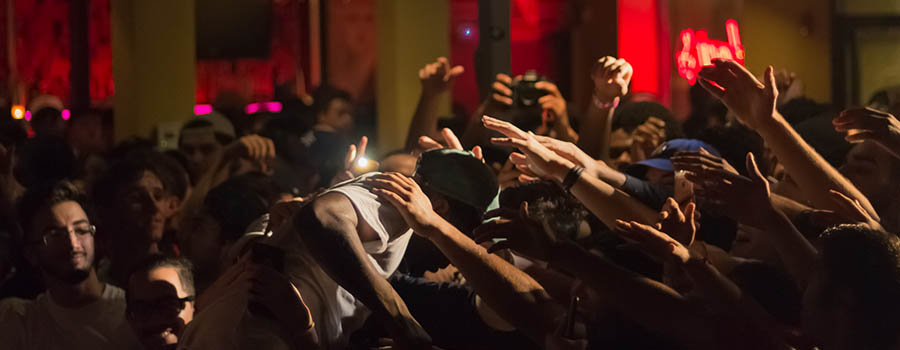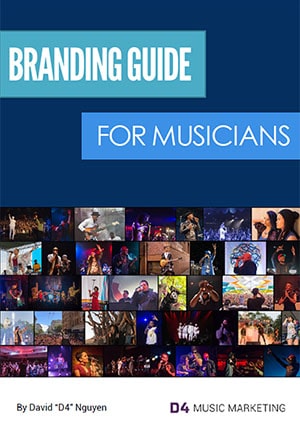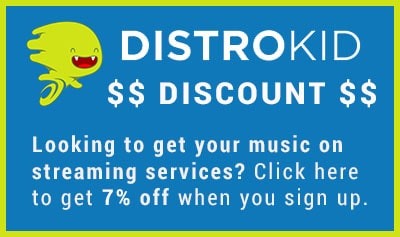
Since 2008, there’s been a popular hypothesis floating around the internet about how artists can make a sustainable living if they are able to earn roughly 1,000 super fans.
Unfortunately with so much competition for attention now, that number may be more. However, the idea behind this is to help dispel this notion that you need thousands or millions of fans to make it as an independent and that living off music is more attainable than it seems.
What exactly is a super fan?
They are the diehard fans that will buy everything you put out, rock your merch and come out to your shows. These are the type of fans you can expect to tattoo their favorite lyrics and make any effort to meet you. They want to support you every step of the way, as they feel emotionally invested in your musical journey. Your music strikes a chord with their lives and resonates with their own life experiences. Most importantly, they become one of your biggest marketing tools by promoting your music to their friends through word of mouth.
Super fans also feel a personal, deep connection to your brand. They support you because your music is a reflection of their own identities and experiences.
So, how do you make fans feel more emotionally connected to your brand?
In this blog, I will discuss 4 simple communication changes in how you interact with your fans that will increase the likelihood they will become super fans.
1. Speak directly to a fan, not as a group
It’s common to address your fans online as a collective group by saying things like:
“Hey guys!”
“Hey everyone.”
“Thank you all for coming out.”
The problem with this is it comes off as a broadcast message that people likely to tune out or subconsciously detach from since it doesn’t feel personal. When you’re more direct, fans are less likely to feel like another person in the crowd and are more likely to pay attention or engage.
You want fans to feel like you are speaking directly to them, whether it’s in person, in emails or in social media. This personal touch is more important now than ever because of the saturation of content and competition for attention.
For your emails and social media posts, tweak your language by using the pronoun ‘you’ instead of referring to a group of fans. Envision yourself as if you’re just talking to that one super fan you know.
This falls into the same concept I remember learning about for team building and leadership back in college. As the leader in a team or group environment, you always want to use the word ‘we’ as opposed to ‘I’ even if you are the only one taking action. It helps others to subtly feel more involved and a part of the group, which increases the likelihood that others contribute and feel motivated. This approach of talking to fans as individuals falls into the same idea. Fans are more likely to feel directly connected to you if you do this consistently.
2. Frame your messages to show benefits for the fans
Artists can come off as self-centered even if they don’t mean it. As a musician, the attention is naturally on you as the performer. You make music that people love, so of course it feels like the focus is on you. You may end up saying things like:
“It would mean a lot to me if you can support my next project.”
“It would really help my career if you came out to the show.”
“By sharing this video, it would really help get my music out and make me successful.”
Yes, your fans want to support you so you can succeed. However, it’s not all about you, but it can seem that way with the language you use. You can call it the “me me me” mindset. Instead, you need to always think about what’s in it for the fan.
Shift the focus in your language from how it benefits you and frame it in a way that shows how it benefits the fan.
This is a common issue even with artists I know and work with. It’s important to make fans feel like you need them more than they need you. In reality, you can argue that the truth is you need them more, because there are so many artists that they can pay attention to. You want the fans to feel like they are the hero in your story, not you. You are providing the soundtrack to their own journey.
Here are examples of how you would want to frame the message instead: (maybe not as corny or cheesy like I did)
“Please support this project so I can continue to make more music that you love.”
“Doing some new music at my next show. Come say hi and get a picture with me.”
“Help spread the message by sharing this video so we can make the world a better place.”
These phrases show what’s in it for the fan for taking the action that you want and ultimately benefit you as well. Before making a request or asking for additional support, think about what the fans want from you or what they would like to get out of what you’re asking for.
Simple changes like how you frame your message can help fans feel more important and more invested in your brand to become super fans.
3. Communicate the larger message through your brand
Often times, fans are drawn to certain artists not just because the music, but the message behind the brand.
As an artist, you’re telling your story through your brand and music. What should be embedded in your story is a deeper philosophical message or meaning. How would your music make the world a better place? What do you stand for that resonates with your fans? Does your brand help to push a deeper, larger narrative, that fans can emotionally latch on to?
If your music makes them see the bigger picture of how things should be, or resonates with them because of a shared belief or value, they are more inclined to develop a long lasting connection with your music. By supporting you and your music, fans are helping to push along or support a larger message that reflects their own personal beliefs or values.
For example, Logic is someone who advocates positivity, acceptance and equality for a better world. Not only does his music reflect this sentiment, he consistently talks about it and advocates his message through social media and even live performances. When you listen to his fans, many of them really resonate with this message. Fans of Logic not only support him because he makes music they like, he stands for something greater than himself.
When you communicate your brand in ways that resonate with the beliefs or values of your fans, you’re likely to get them to feel a deeper connection that leads them to become super fans.
As an artist, you really want to communicate in a way that makes fans feel they are a part of something bigger than just your music. If you are unsure about what your brand stands for or what your brand message is, check out these branding blogs to help you on the right path.
4. Engage fans with the intention of building relationships
This means setting time aside to engage with fans and making yourself accessible. As an artist, your fans may want to connect with you on a deeper level because of your talent or how your music impacts their lives. By acknowledging and engaging with them, it helps to humanize you and plants the seed of them potentially becoming a super fan.
Dedicate some time out before or after a show to talk to fans that want to meet you. Take photos and sign CDs if they ask. Respond to people’s comments or questions online. These small actions are a huge step in building a deeper fan relationship. I like to think of it as branding, providing long term value for fans even if it does not give you an immediate monetary return.
Early in your career, it makes more sense to engage with as many fans as you can wherever possible in an effort to build up those 1,000 super fans. As you become more established, you’ll have less time for it, but it doesn’t mean you should completely stop. As popular as he is, even Slug of Atmosphere (my favorite music duo) still meets fans outside of the venue for pictures before their shows. Not even as a meet and greet package, he just hangs out with fans: (these are actual clips I took)
This doesn’t mean you have to be best friends with every fan, but at least give them the opportunity to connect with you directly. Fans generally understand that artists are busy, so your effort will mean a lot.
On the other hand, you may be someone who is not very social or reserved, so it may be harder for you to put yourself out there. That’s okay too, because people like that can relate. Fans who gravitate to your music or talent may end up being people who are very similar to you.
Lastly, you never know how some fans may be able to help you down the road in your career. Don’t discriminate against the fans you choose to engage based solely on what you think they can do for you. You never know who a fan may know or what resources they have that you need.
One of the artist I work with, Butterscotch, had the opportunity to open up for one of her favorite artists, Thievery Corporation, because one of her fans knew she was a big fan. This fan, who worked for the Las Vegas venue Brooklyn Bowl, suggested Butterscotch as the opener and it happened.
Conclusion
Reaching 1,000 super fans is not an easy task. By making these 4 tweaks in how you communicate with fans, I believe you’ll be more likely to earn the super fans needed to sustain a career in music. It starts with not only putting out good music, but giving fans a reason to feel more emotional invested in your brand and a part of your journey.







